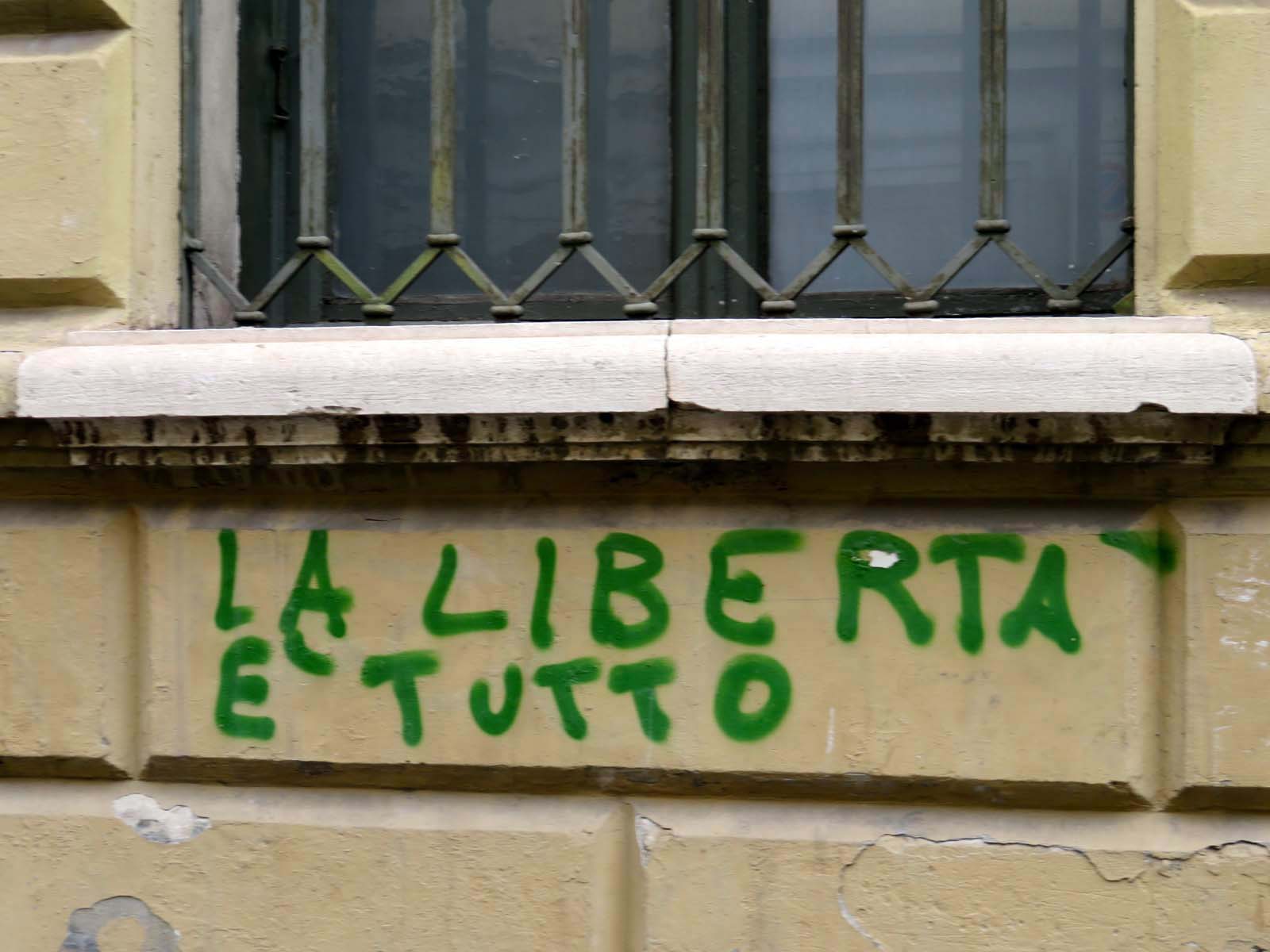In 1995, Umberto Eco (author of The Name of the Rose, among others) published an essay in the New York Review of Books called: Ur-Fascism with a sub-title Freedom and Liberation are an unending task. He had grown up under Mussolini’s regime and he was trying to assess in this essay when or under what circumstances it is legitimate to call something fascism.
He insisted “There was only one Nazism,” but “The fascist game can be played in many forms, and the name of the game does not change.” He then went on to outline 14 “typical” features that make up the qualities of what he calls “Ur-Fascism, or Eternal Fascism.”
“These features cannot be organized into a system; many of them contradict each other, and are also typical of other kinds of despotism or fanaticism. But it is enough that one of them be present to allow fascism to coagulate around it.”

I am copying them here (Ref.) and add some annotations posted by German analyst Marc Raschke on IG, put into my own words.
1. The cult of tradition. “One has only to look at the syllabus of every fascist movement to find the major traditionalist thinkers. The Nazi gnosis was nourished by traditionalist, syncretistic, occult elements.” Let’s go back to a (presumed) golden past : Make America Great again!
2. The rejection of modernism. “The Enlightenment, the Age of Reason, is seen as the beginning of modern depravity. In this sense Ur-Fascism can be defined as irrationalism.” Climate change? What climate change? Science? Vaccinations? Infectious or chronic disease research?
3. The cult of action for action’s sake. “Action being beautiful in itself, it must be taken before, or without, any previous reflection. Thinking is a form of emasculation.” Tariffs yes! Tariffs no! Let’s break organizations before we re-build them (if we rebuild them…)

4. Disagreement is treason. “The critical spirit makes distinctions, and to distinguish is a sign of modernism. In modern culture the scientific community praises disagreement as a way to improve knowledge.” Media? Critics? Scientists? Universities? Enemies of the People! More executive orders like “Restoring Truth and Sanity to American History.”
5. Fear of difference. “The first appeal of a fascist or prematurely fascist movement is an appeal against the intruders. Thus Ur-Fascism is racist by definition.” Diversity? Let’s get rid of or demote anyone not fitting the norms set by white men… deport! deport! deport!
6. Appeal to social frustration. “One of the most typical features of the historical fascism was the appeal to a frustrated middle class, a class suffering from an economic crisis or feelings of political humiliation, and frightened by the pressure of lower social groups.” Frustrated? Status challenged? – It’s the fault of minorities, migrants, the elites or trans people! Remember the Great Replacement idea.

7. The obsession with a plot. “Thus at the root of the Ur-Fascist psychology there is the obsession with a plot, possibly an international one. The followers must feel besieged.” Obsessed with conspiracies? Too many to count here….
8. The enemy is both strong and weak. “By a continuous shifting of rhetorical focus, the enemies are at the same time too strong and too weak.” The Deep State is all powerful! The Deep state is ineffective and corrupt!
9. Pacifism is trafficking with the enemy. “For Ur-Fascism there is no struggle for life but, rather, life is lived for struggle.” Let’s have a war against the invading foreigners or the Deep State or the Law firms or whoever comes to mind this moment. What about Greenland? Canada? Panama Canal?

10. Contempt for the weak. “Elitism is a typical aspect of any reactionary ideology.” The weak need to be eliminated! Only the strong should rule! Let’s get rid of meals-on-wheels! Let cancer patients die, who needs research. FEMA is a waste. Scratch the financial support for heating and cooling.
11. Everybody is educated to become a hero. “In Ur-Fascist ideology, heroism is the norm. This cult of heroism is strictly linked with the cult of death.” We are a heroic mass movement with the biggest popular support (ignore the election statistics…) and our martyrs shall be heroes – like Ashli Babbit on January 6th…
12. Machismo and weaponry. “Machismo implies both disdain for women and intolerance and condemnation of nonstandard sexual habits, from chastity to homosexuality.” Men rule, women serve – they will be protected (and fertilized… ) whether they like it or not. Let’s have a household vote only from male head of household. Let’s eliminate choice and control of one’s own body. Let’s do away with marriage equality. Project 2025 spells it out in detail.

13. Selective populism. “There is in our future a TV or Internet populism, in which the emotional response of a selected group of citizens can be presented and accepted as the Voice of the People.” PBS be gone! Billionaire-owned media rule.
14. Ur-Fascism speaks Newspeak. “All the Nazi or Fascist schoolbooks made use of an impoverished vocabulary, and an elementary syntax, in order to limit the instruments for complex and critical reasoning.” Newspeak? Fake News, Woke Mind Virus, Deep State anyone?

1995 – 2025. You can draw your own conclusions.
Music today by Luciano Berio who was a close friend of Eco’s, and at times collaborating on projects that combined semiotics and music. (I chose one of his more traditional compositions.)
Graffiti with tongue-in-cheek suggestions for an antidote to fascism, from Vienna, during my last visit. The Italian one I photographed in Trieste, in 2018.

